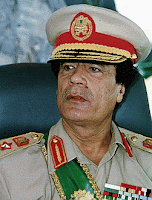Dr. Rajendra Prasad (3 December 1884 – 28 February 1963) was born in the village Ziradei, at that time part of the Saran district of Bihar. He was one of the architects of the Indian Republic, having drafted its first constitution and serving as the first president of free India.
During the independence movement, he left his law work and joined the Congress Party, playing a prominent role in the Indian Independence Movement. He served as the president of the Constituent Assembly that drafted the first constitution of the Republic, which lasted from 1948 to 1950. He also briefly served as a cabinet minister in the first Government of the Indian Republic.
Early life
Rajendra Prasad was the youngest son of Mahadev Sahai, and was born in Zeradei village, in the Siwan district of Bihar, on 3 December 1884. He was the youngest in a large family. He was known as "Rajen" to his family and friends. His father was a scholar of both the Persian and Sanskrit languages, while his mother, Kamleshwari Devi, was a religious woman.
Student Life
When Prasad was five years old, his parents placed him under the tutelage of a Mawlawi, an accomplished Muslim scholar, to learn the Persian language, Hindi and arithmetic. After the completion of traditional elementary education, Prasad was sent to the Chapra District School and at the age of 12, he was married to Rajavanshi Devi. He, along with his elder brother Mahendra Prasad, then went on to study at T.K. Ghosh's Academy in Patna.
He placed first in the entrance examination to the University of Calcutta and was awarded Rs.30 per month as a scholarship. He joined the Presidency College in 1902, initially as a science student. Later he decided to focus on the arts. Prasad lived with his brother in the Eden Hindu Hostel. A plaque commemorates his stay in that room.
Prasad was instrumental in the formation of the Bihari Students' Conference in 1908. It was the first organization of its kind in India.
In 1915, Rajendra Prasad graduated with a Masters in Law, passing his examination with honors. He then went on to complete his Doctorate in Law.
Career
As a teacher
Prasad served in various educational institutions as a teacher. After completing his MA in economics, he became a professor at the Bhumihar Brahman College in Muzaffarpur and went on to become the principal. However later on he left the college for his legal studies. In Kolkata too he worked as Professor of Economics.
As a lawyer
Prasad practiced law and pursued studies at Bhagalpur in Bihar. In 1916, he joined the High Court of Bihar and Orissa. Often when his adversary failed to cite a precedent, the judges would ask Rajendra Prasad to provide it.
During the Independence Movement
Prasad was drawn into the Indian independence movement soon after starting his career as a lawyer. During one of the fact-finding missions at Champaran, Mahatma Gandhi asked him to come with his volunteers. He was so greatly moved by the dedication, courage, and conviction of Mahatma Gandhi that he quit his duties in the university to aid the movement.
During the course of the independent movement, he formed a friendship with Dr Rahul Sankrityayan, a writer, freedom fighter, and polymath. In many of his articles he mentioned about his meeting with Sankrityayan and narrated about their close friendship. He wrote articles for the revolutionary publications Searchlight and the Desh and collected funds for these papers. He toured widely, explaining, lecturing, and exhorting the principles of the independence movement.He also responded to the call by Gandhi to boycott Western educational establishments by asking his son, Mrityunjaya Prasad, to drop out of his studies and enroll himself in Bihar Vidyapeeth, an institution he along with his colleagues founded on the traditional Indian model
He took an active role in helping the affected people during the 1914 floods that struck Bihar and Bengal. When an earthquake affected Bihar on 15 January 1934, Prasad was imprisoned in jail.During that period, he passed on the relief work to his close colleague Dr Anugrah Narayan Sinha. He was released two days later, and set himself the task of raising funds to help the people.
He was elected as the President of the Indian National Congress during the Bombay session in October 1934. He again became the president when Netaji Subhash Chandra Bose resigned in 1939.
After Indian independence was achieved in 1950, he was elected as the first President of India.
Prasad acted independently of politics, following the expected role of the president that the constitution set down. Following the tussle over the enactment of the Hindu Code Bill, he took a more active role in the affairs of the nation. He set several important precedents for later presidents to follow.
In 1962, after twelve years as the president, he announced his decision to retire. He was subsequently awarded the Bharat Ratna, the nation's highest civilian award.
He died on 28 February 1963





